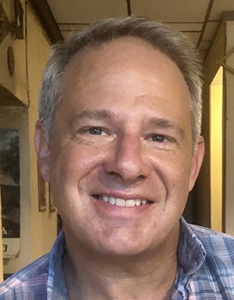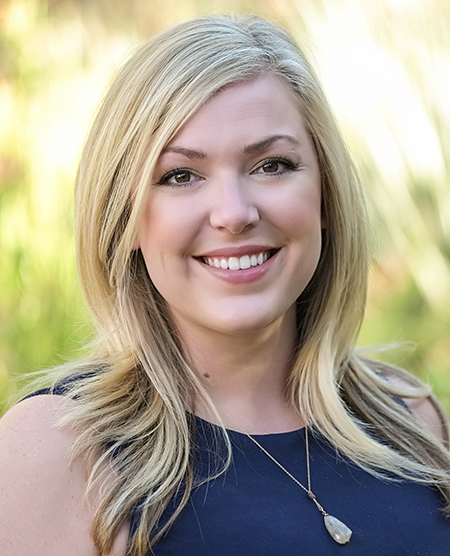40 under 40: Elli Voorhees, Security Industry Association (SIA)

By Paul Ragusa
Updated 12:52 PM CDT, Fri April 22, 2022
 YARMOUTH, Maine—Elli Voorhees, Ph.D, 33, has been in the security industry for nearly 10 years. Since 2019, she has served as the director of learning and development for the Security Industry Association (SIA), where she oversees SIA’s expanding portfolio of training, credentialing and professional development programs.
YARMOUTH, Maine—Elli Voorhees, Ph.D, 33, has been in the security industry for nearly 10 years. Since 2019, she has served as the director of learning and development for the Security Industry Association (SIA), where she oversees SIA’s expanding portfolio of training, credentialing and professional development programs.
“My primary day-to-day responsibilities range from managing curriculum development and designing learning experiences for new and existing programs to facilitating committee meetings and planning conference programs for SIA Education@ISC events,” she explained. “I spend a lot of time working with subject matter experts in the industry to design and deliver programs of strategic value for SIA’s members and their channel partners. Most recently, I led the co-development of the new Security Industry Cybersecurity Certification (SICC) in conjunction with subject matter experts from SIA, PSA Security Network and Security Specifiers. I also provide support and leadership for conformity assessment processes to ensure SIA’s programs meet compliance requirements to defined industry standards (ISO/IEC 17024:2012 & ICE 1100:2019).”
The following is our exclusive Q&A:
SSN: How did you get into and what inspired you to get into the security industry?
VOORHEES: While finishing my master’s degree at the University of Southern Mississippi (USM), I interviewed for a student research position with the National Center for Spectator Sports Safety and Security (NCS4) to assist with program management and event planning. The Center had a very lean team at the time, so I gained experience in many different facets of the Center’s industry outreach and applied research, which included training and certification program development, technology product assessments, compliance auditing, conference planning and grant program management. I decided to stay at USM to pursue my doctoral degree in human capital development. Coincidentally, the position at the Center opened around the same time and I was hired on as a full-time team member.
In my early days at NCS4, I was part of the initial focus group for the Certified Sport Security Professional (CSSP) credential. The focus group included prominent security professionals representing some of the country’s largest sports facilities and entertainment venues. The group spent three days discussing what a person in their position needs to know to perform their role effectively, considering the massive responsibilities for protecting critical infrastructure (which are considered potential soft targets for terrorism) and preparing for emergency and non-emergency operations related to event safety and security while providing quality customer service. I quickly recognized that the security profession was comprised of knowledgeable and experienced practitioners who truly care about the work they do so that fans and attendees can enjoy events with a reasonable assurance of safety.
Over the next several years, I learned more about the security concerns of different industry segments, such as professional, collegiate, interscholastic and marathon/racing events, which each have their own unique challenges. The opportunity to collaborate with those individuals and learn about their concerns, vulnerabilities and the expressed need for training solutions inspired me to pursue a career as a learning professional within the security industry.
SSN: What are the top trends in security today and how do see those changing in the future?
VOORHEES: Cybersecurity and workforce development are two of the most critical security trends I see impacting the security industry today. My perspective tends to gravitate towards the knowledge and skill required of those who are entering the profession or who are established professionally but looking to further develop expertise in certain areas. There is a well-known competency gap in cybersecurity for physical security professionals and even support staff, who should be knowledgeable about basic cybersecurity vulnerabilities and protective measures for device installation, configuration and networking. What’s more, there exists a significant opportunity to educate many key players in the security ecosystem who share the responsibility of managing and maintaining the cyber hygiene of networked technology solutions within an operational context.
Workforce development is inseparable from the broader objective in recruitment and hiring of qualified talent. The industry could benefit from defined career pathways and learning structures that help raise awareness among students about job opportunities available within the security industry. So many professionals have entered the field of security either by happenstance or through ancillary career routes within broader organizations. The development of degree programs, training of scale and industry-recognized credentialing programs will more formally and accurately characterize the industry as a true applied science, which is based upon risk management principles and optimized by technology and innovation.
SSN: What do you believe is the most exciting/promising new security technology and why?
VOORHEES: 5G technology has the potential to reimagine and fundamentally change the world as we know it. My generation is probably the last to have lived in a world without internet connectivity (board games are still cool, right?). There is massive potential for 5G to transform the current digital landscape through increased data speeds, enhanced network security, and improved capabilities. Security will be at the forefront of this impending technological advancement. It presents an opportunity to expand into global markets, revolutionize supply chains and improve the delivery of security services.
Significant shifts in any industry present a learning curve. 5G is the next significant shift. Organizations that focus on learning and development will likely establish a competitive advantage by demonstrating agility during times of great change. In my experience, organizations that invest in human capital development and effectively leverage individual and organizational expertise are better positioned to progress quickly with technological advancements and become industry leaders.
SSN: Can you talk about some of the keys to succeeding right now during these unpredictable times we are all going through with COVID, both personally and in business?
VOORHEES: In the words of my greatest mentor and advisor (who also happens to be my dad), “Moderation is key.” This mantra has guided me through many of life’s challenges, but it rings true to just about anything. Don’t work too much; don’t play too much; don’t eat too much; don’t do anything TOO MUCH. Strive to achieve a healthy balance in anything you do, so that you can do those things well and enjoy them in the process. During these past two years of working remotely it was often difficult to delineate when work started and stopped. Many of us didn’t have that mental checkpoint of leaving the office, which may have resulted in responses to late-night emails or extended hours of work in lieu of family or personal time. Finding ways to maximize working hours while establishing boundaries has been, and still is, an important aspect of time management for healthy work-life balance.
Just as important as setting boundaries is setting goals, both personally and professionally. It is important to follow through on the commitments you make to yourself. Experience has taught me that perseverance is a learned skill and big accomplishments are achieved through small actions and routine practices. Succeeding during unpredictable times requires determination, grit and resiliency – but it also takes mercy and grace to accept things beyond one’s control and to move forward with a high sense of self-efficacy.
SSN: What are your views on the industry moving forward?
VOORHEES: As the industry continues to evolve and progress through both invention and innovation, there is a real need to enhance the interoperability of integrated security solutions. Keeping up with the pace of change is a challenge for many technology-driven industries. It is especially important to ensure that new and existing systems and platforms can communicate with other building and business systems to enhance the overall effectiveness and synergy (cost and convenience) of interconnected physical and electronic security equipment.
The global market for smart building infrastructure and IoT/IIoT endpoint devices is projected to substantially increase over the next ten years. This presents an opportunity for the industry to increase the capability and functionality of new solutions to meet the operational needs of clients and end users, while ensuring that the exchange of electronic data is done securely.
SSN: What can be done to get more talented, diverse young people involved in security?
VOORHEES: Helping people understand how security products, services and operations are directly and tangentially intertwined with just about every business or organization, regardless of the industry, will attract diverse talent to the security industry. As a profession, there is an expansive list of core competencies that are needed for various roles, which is beneficial for attracting people from diverse backgrounds with unique skill sets and experience.
Demonstrating the linkage between hospitality and risk management, engineering and biometrics, supply chain and cybersecurity, finance and data privacy, architecture and CPTED, etc., conveys broad breadth of opportunity for skilled individuals looking for upward mobility in a billion-dollar industry. The challenge is conveying the message that the industry is not only on the cutting edge of technological advancement in areas such as artificial intelligence and robotics but also a central function of any organization, in a novel and appealing way. By showing how the work is both pioneering and purposeful, the gateway is open to attracting talent from diverse communities in the expanding world of security.
Comments